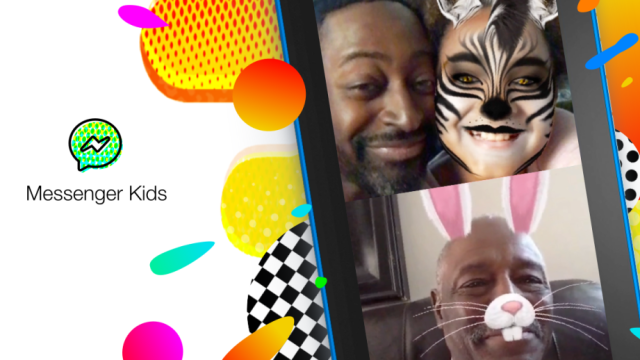Facebook’s messaging service for children has been widely criticised by child health advocates who have urged Mark Zuckerberg to delete the app altogether. But Facebook hasn’t scrapped the chat app for kids as young as six years old. Instead, it’s adding more features and extending its reach.
Image: Facebook
On Friday, Facebook announced it is rolling out Messenger Kids to Canada and Peru as well as making Spanish and French versions of the service available to all users. Facebook also announced a few new features, including a “Messenger Kids Pledge,” which Facebook describes as: “A pledge of guiding principles between parents and kids that encourage the responsible use of Messenger Kids: Be Kind, Be Respectful, Be Safe, and Have Fun.”
It also came out with “Kindness Stickers,” which are “designed to inspire kindness towards others.” And, lastly, Facebook is going to roll out an “Appreciation Mission” soon. Facebook says this “interactive guide” will be part of the app’s missions section and is intended to “encourage kids to discover and express appreciation for their friends and family.”
“We designed Messenger Kids from the ground up with elements that teach kids how to better understand and express their emotions in creative ways, encourage and promote healthy social behaviours, and deepen positive connections between kids and their close friends and families,” Facebook wrote in the post.
It’s evident that Facebook wants its Messenger Kids service to play a role in the lives of developing minds. And it may seem like a noble cause, to foster a healthy outlet for self-expression and socialising with loved ones.
But, according to an open letter to Zuckerberg that nearly 100 child health advocates threw their weight behind in January, social media and increased screen time are detrimental to the growth and well-being of young kids. “Messenger Kids is not responding to a need — it is creating one,” the letter states.
Facebook wrote in its blog post on Friday that it is working with researchers and advisers on developing features “rooted in principles of social and emotional learning.” But it’s important to note the asterisk at the bottom of the post, which notes how “these researchers work in a paid capacity with Facebook.” They are hardly an unbiased third party.
Facebook says it’s listening to parents who want a better social network option for their kids, but it’s unclear if Facebook is listening to those opposing such a service for young, impressionable minds.
